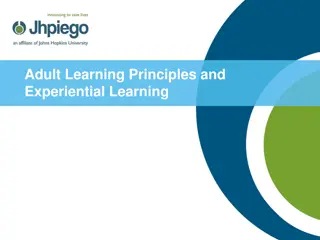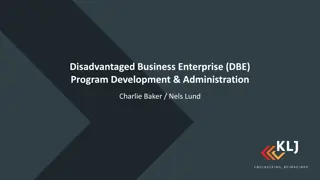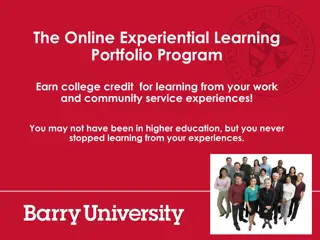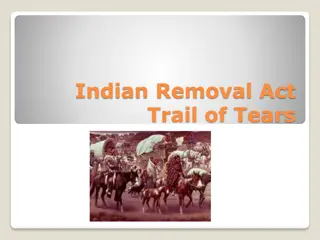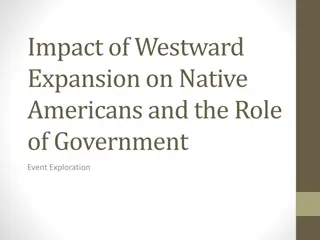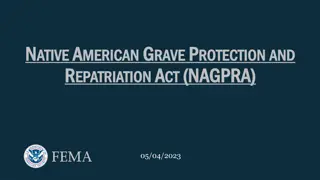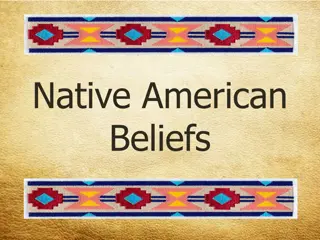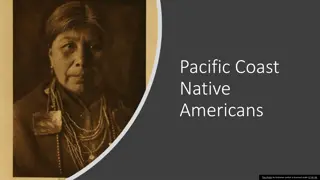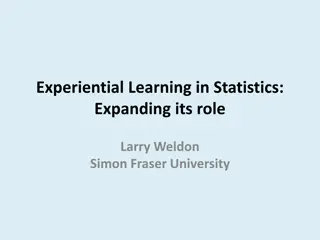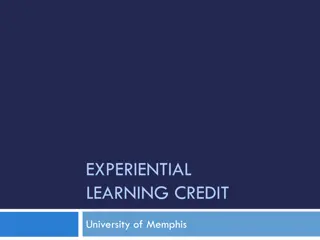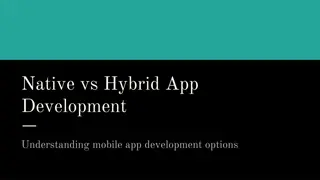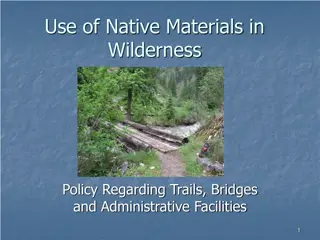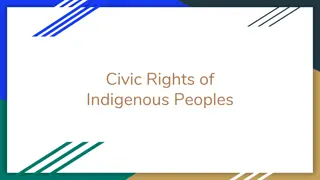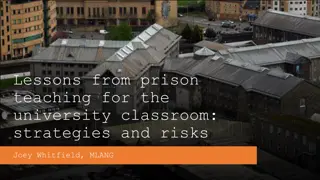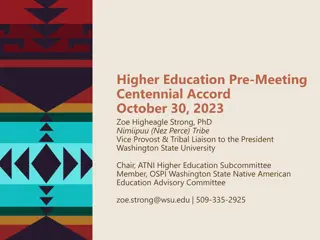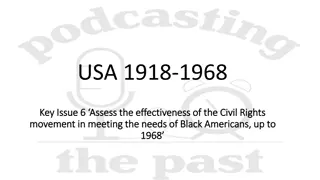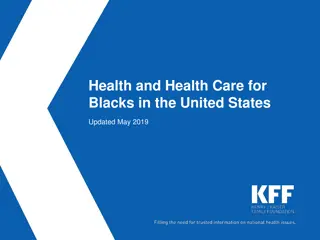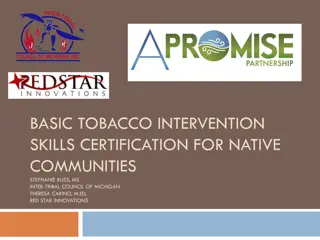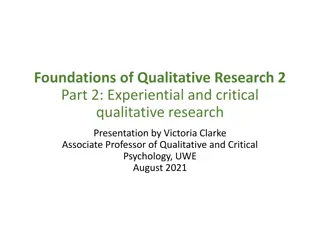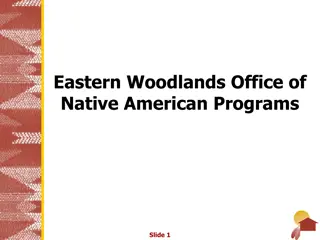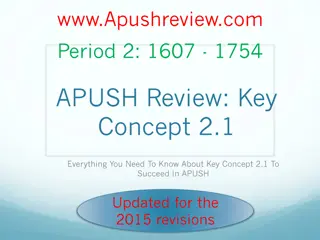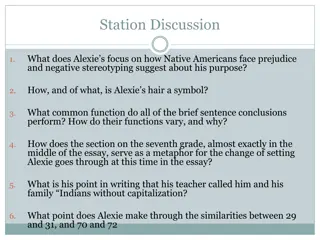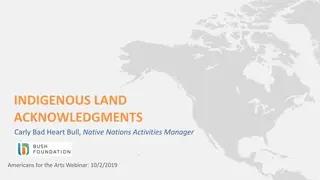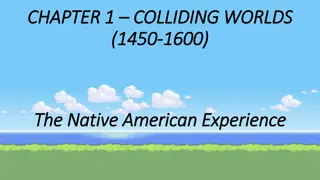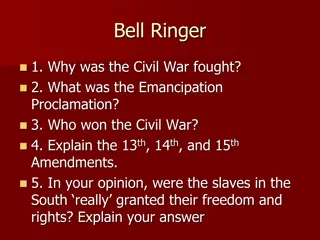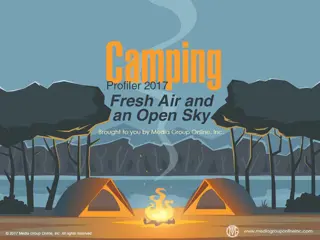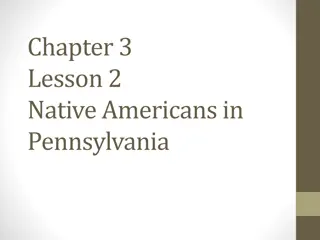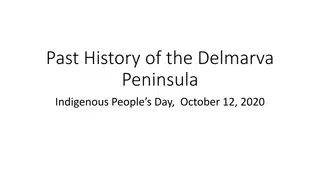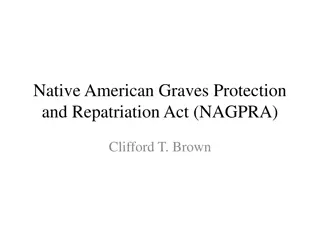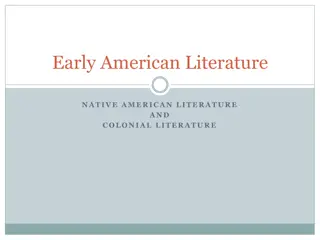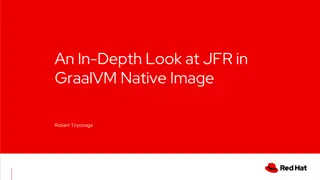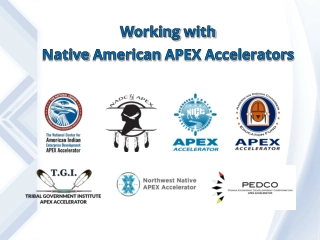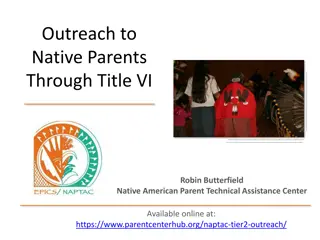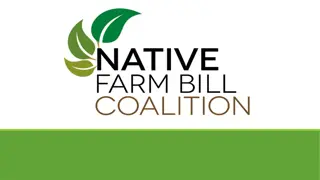Challenges and Opportunities of Experiential Learning Among Native Americans
Experiential learning among Native Americans presents unique challenges such as administrative hurdles, student preparation, logistical issues, and assessment limitations. Overcoming these challenges offers valuable insights for political scientists seeking to engage with indigenous communities, enhance cultural sensitivity, and promote experiential education in non-traditional settings.
Download Presentation

Please find below an Image/Link to download the presentation.
The content on the website is provided AS IS for your information and personal use only. It may not be sold, licensed, or shared on other websites without obtaining consent from the author. Download presentation by click this link. If you encounter any issues during the download, it is possible that the publisher has removed the file from their server.
E N D
Presentation Transcript
Experiential Learning among Native Americans: Challenges, Opportunities, and Insights for Political Scientists Richard S. Conley Department of Political Science University of Florida
Why Experiential Learning? Why among Native Americans? Lack of attention to Natives in American political science Few students have had interactions/visited reservations New knowledge though experience, observation and conceptualization, reflection, and application outside the classroom setting Places students in complex milieu and thought- provoking situations that are typically impossible to create in the classroom environment
Challenges Administrative Not like international programs: No guide, no clearinghouse Memo available at http://users.clas.ufl.edu/rconley/experientiallearningguidelines.pdf 18 months to develop in concert with Distance and Continuing Education (DCE) Many moving parts (and forms!): DCE, Shared Services, CLAS, Department, Registrar Difficulties in development of budget: hotels, transportation, site visits, and cost per student Recruiting students: Web, classroom visits, list-servs
Challenges Student preparation Cultural sensitivity & decorum Pre-departure meeting Denver, Colorado, marijuana legalization, and other states a quick lesson in confused federalism Hold-harmless and other forms signed by students in advance of the trip
Challenges Running a tight ship: Punctuality Centrality of communication, exchange of phone numbers, clear-cut itinerary Graduate teaching assistant Budgeting time to load up each morning Bathroom stops!
Challenges Insufficiency of tests, lack of feasibility in remote areas Distracts from the mission of experiential learning Alternative forms of assessment Journaling Informal group discussions Reflection paper due at end of semester Integration of academic material
Spring Break Trip, 2017 Flew to Denver, rented 15-passenger van Visited historical sites, met with tribal governmental/federal officials, visited sacred sites Fort Laramie (WY) 1851/1868 Treaties Wind River Reservation (Shoshone/Arapaho) Crow (Aps looke) Reservation/Little Bighorn Battlefield/Bighorn Canyon (MT) Black Hills/Mount Rushmore Oglala Lakota (Sioux) Reservation (SD)
General Themes Impact of Treaties and Violations Nation-to-nation relationships broken Nations, not minorities Elision and Restoration Case of Wyoming schools & Native history Preservation and Loss of Sacred Sites Contrasting examples of the Lakota & Crow Loss of language and culture Impact of historical policies like boarding schools
Reprise Life-changing experience for students (reported) Interpersonal relationships Sometimes uncomfortable conversations about past and present Mutual understanding, service learning Integration of Native perspectives into teaching and research



